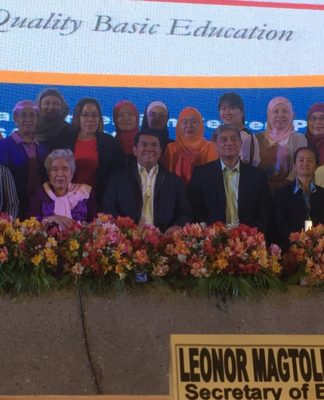The ruling of the Supreme Court last December banning the field trials of genetically modified organisms (GMO) is a blow not only to biotechnology but also to the Philippines.
GMOs are living organisms such as plants, animals and microorganisms whose genetic material has been artificially manipulated or altered in a laboratory through genetic engineering.
Several scientists and agriculture students have frowned on the high court’s decision, prohibiting field trials, propagation, commercialization and importation of GMOs, unless there is an administrative order that will dictate otherwise.
The court based its ruling on Section 15, Article II of the Constitution, which states that “the State shall protect and promote the right to health of the people and still health consciousness among them.”
However, will the decision really be beneficial to Filipinos?
For example, won’t the decision close a lot of doors, toward discovering resilient and high-yielding crops?
Won’t the ruling be a bane on the future of Philippine agriculture?
We can trace the history of GMOs in our country to 1979 when President Ferdinand Marcos approved and provided funding for biotechnology and innovative products, processes, testing and analytical services for agriculture, health, energy industry and development.
Governments after Marcos’ continued support for scientific studies and issued executive orders to ensure that biotechnologies are safe not only for the human life but the environment as well.
Although there is continuing international debate on the use of GMOs, the Supreme Court held that since the debate is characterized by uncertainty, there would be a possibility of irreversible and serious harm to the health of the people who would consume the by-products of these GMOs.
Michael Purugganan, science dean at New York University, said the new ruling could compromise the Philippines, explaining that GMOs could be the key to feeding the world.
He added the Philippines might depend on other countries to provide the technology to feed Filipinos because the country had prevented its own scientists from finding biotechnological solutions to feed its people.
What is more alarming is that agriculture schools cannot even use their laboratories for any biotechnology processes prohibited by the Supreme Court’s decision.
This will be problematic for students who are engaged in biotechnology. They may incur more expenses for their researches and may not even graduate on time.
On another point, some raw materials coming from other vegetables such as soybean meal and corn are genetically-modified and can affect the production of poultry and livestock. This can also be detrimental to farmers.
Since our country is basically agricultural, our scientists have a crucial role in helping our farmers devise new ways and means to produce high-quality, high-yielding food and agriculture. This will entail a lot of research work and liberal thinking.
To be sure, the Supreme Court is merely protecting the health and safety of Filipinos in coming up with the decision. But it is also true it may have compromised the future of the Philippines and dim prospects for agricultural advances that aim to feed the people adequately.
















